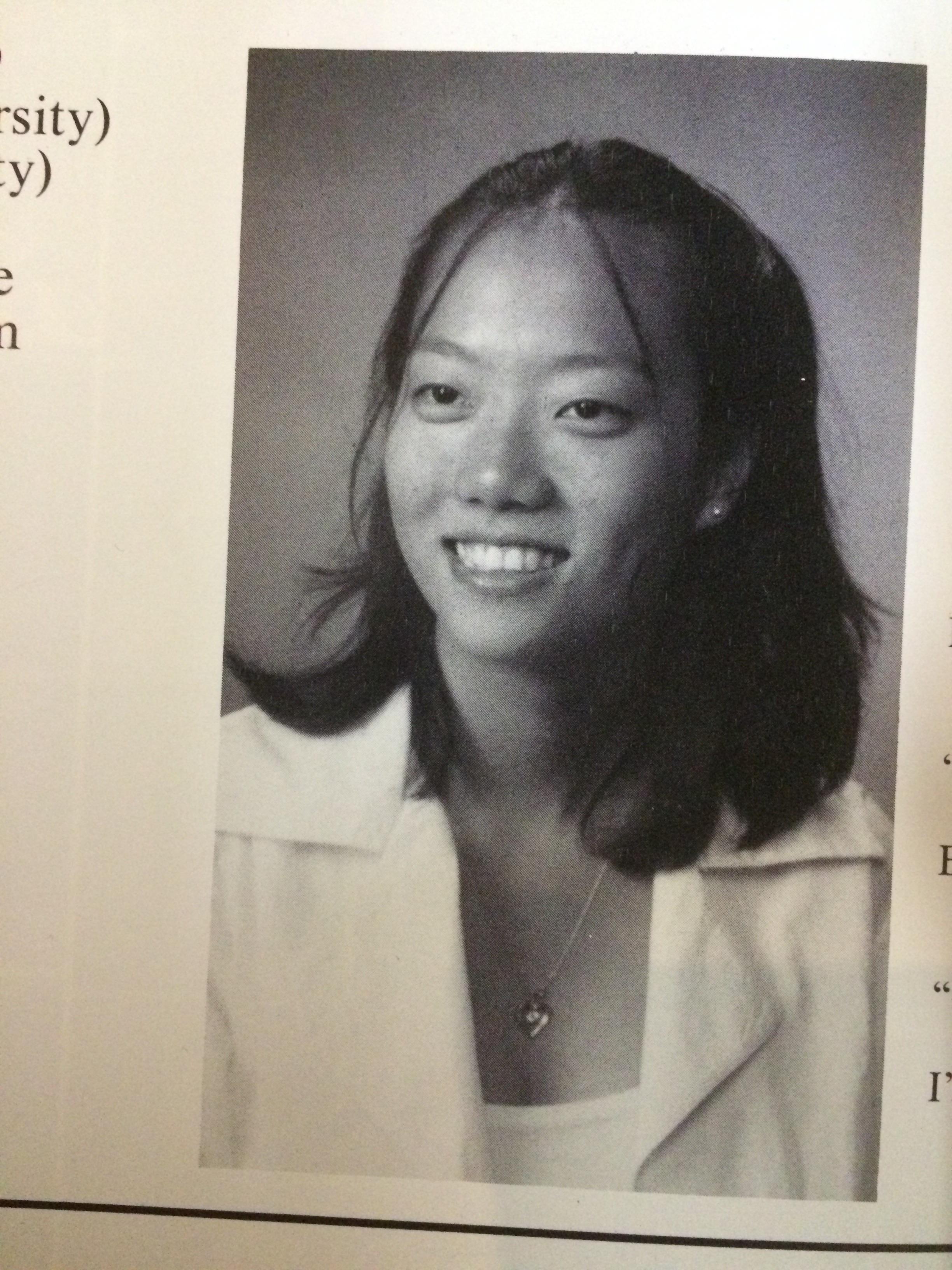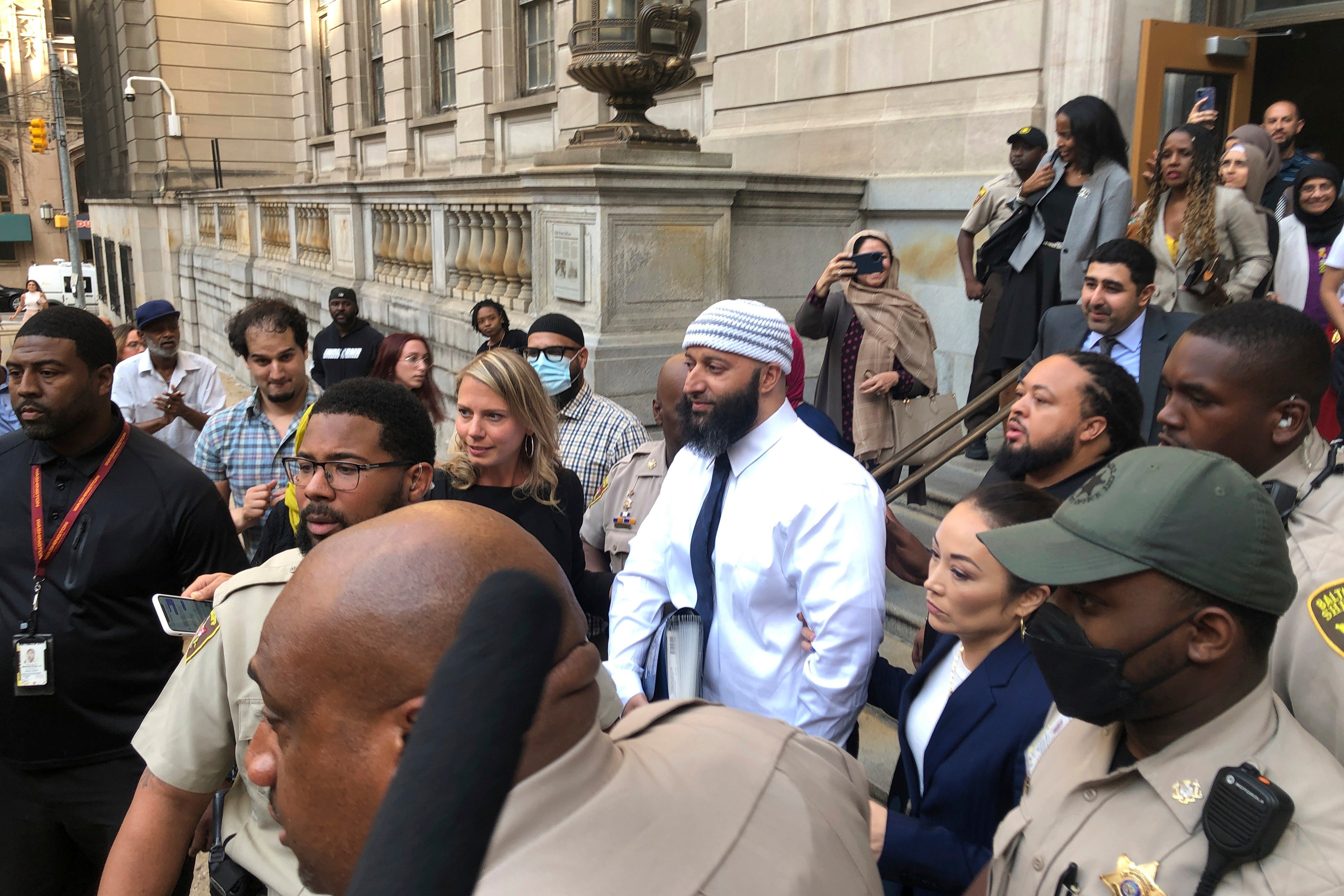Serial subject Adnan Syed’s murder conviction was overturned. He’s still fighting to keep it that way
The case which gained global attention in the podcast Serial has rumbled on for over two decades. Now, one year after Adnan Syed walked free from prison, he is back in court fighting to prove his innocence in the 2000 murder of his girlfriend Hae Min Lee. Mike Bedigan and Rachel Sharp report


In 1999, 18-year-old Hae Min Lee vanished from her high school without a trace.
Her body was found in a shallow grave a month later, with suspicions quickly turning towards her boyfriend Adnan Syed.
Syed, then 17, was convicted of Lee’s murder in 2000, though the case has rumbled on for over two decades with multiple twists and turns.
After gaining global attention after being chronicled in the hit 2014 podcast Serial, by journalist Sarah Koenig, doubts grew around Syed’s guilt of committing the crime.
Then, last September, after almost 23 years behind bars, his conviction was overturned and he was walked free from prison a free man.
But it was only short-lived as this March an appellate court reversed that decision, saying that the rights of Lee’s family had been violated.
Now, Syed is back in court fighting for his freedom once again.
Here is everything we know about the case.
Convicted of murder
On 13 January 1999, Hae Min Lee – a student at Woodlawn High School in Baltimore, Maryland – disappeared without a trace. That February, her body was found buried in an unmarked grave in nearby Leakin Park. She had been strangled.
Syed, her boyfriend at the time, was arrested and charged with her murder.
In 2000 he was convicted of murder, robbery, kidnapping and false imprisonment, and sentenced to life in prison.
The conviction relied heavily on testimony from Syed’s friend Jay Wilds, who claimed that Syed confessed to killing Lee and enlisted his help in digging a hole to bury her body in the park.
Mr Wilds said that he went along with it because Syed threatened to tell the police that he was running a drug operation, which he feared would land him with hefty jail time.

Cellphone records were also used at the trial to place Syed at the crime scene.
Serial
Fourteen years later, a podcast from journalist Sarah Koening – titled Serial – was released. The multi-episode series drew attention from around the world and raised doubts about Syed’s conviction.
Following its success, in February 2015, a court in Maryland agreed to hear an appeal of Syed’s conviction and he was granted a new hearing, allowing his defence to bring forward more evidence in the case.
The following year, Syed was then granted a new trial after his attorneys argued that his original trial lawyer, who later died, was grossly negligent.
The defence also presented new testimony from witness Asia McClane (who featured in Serial) who said that she saw Syed in the public library at the time he was accused of killing Lee.
Syed’s request to be released on bail was denied and he was ordered to continue to be held behind bars.
Fighting for freedom
Over the course of the next few years, Syed’s case endured many twists and turns.
In 2018 the decision to grant him a new trial and vacate his conviction was upheld. Syed also turned down a plea deal, as it would require him to plead guilty to Lee’s murder.
Just one year later, Maryland’s highest court reversed the lower court’s ruling, denying Syed a new trial and reinstating his conviction. In November 2019, the US Supreme Court also declined a request to hear the case.

In March 2022, Syed’s defence team and state prosecutors filed a joint request for new touch DNA testing on Lee’s clothing – which was not available at the original trial – to be carried out.
On 14 September 2022, Baltimore City State’s Attorney Marilyn Mosby asked a judge to overturn Syed’s conviction and release him from prison.
Ms Mosby said that “the state no longer has confidence in the integrity of the conviction” based on doubts about the validity of cellphone records used in his original trial as well as new information about the possible involvement of two unnamed suspects.
Five days later – on 19 September 2022 – Baltimore City Circuit Judge Melissa Phinn overturned Syed’s conviction and ordered him to be given a new trial, saying it is “in the interest of justice”.
Syed walked free from prison, released on home detention after more than 23 years behind bars.
Conviction reinstated
But the case is still not over.
In March 2023, an appellate court panel reinstated his murder conviction, ruling that a lower court had violated the rights of Lee’s family.
The court argued that Young Lee, Lee’s brother, had not been given enough notice to attend the critical hearing in the case.

The Maryland court ordered a do-over of the hearing in which Syed’s conviction was overturned and noted that its ruling “results in the reinstatement of the original convictions and sentence”.
What happens now?
On Thursday – October 5 2023 – the case was brought back into the public eye once again as the Maryland Supreme Court began a review of the September hearing.
Issues discussed included not only whether Syed’s 2000 murder conviction should be reinstated, but also the extent to which Maryland crime victims have a right to participate in hearings on whether to vacate a conviction.
The panel of seven judges will release their ruling in the coming months, with Syed’s freedom – and justice for Lee’s family – still hanging in the balance.
On Thursday, Syed said he was looking forward to the court’s decision.
“We believe very strongly in trying to find justice for Hae and her family,” he told reporters at the courthouse, flanked by family members.
“And we’re hoping also that we’re able to find justice for us, too.”



Bookmark popover
Removed from bookmarks